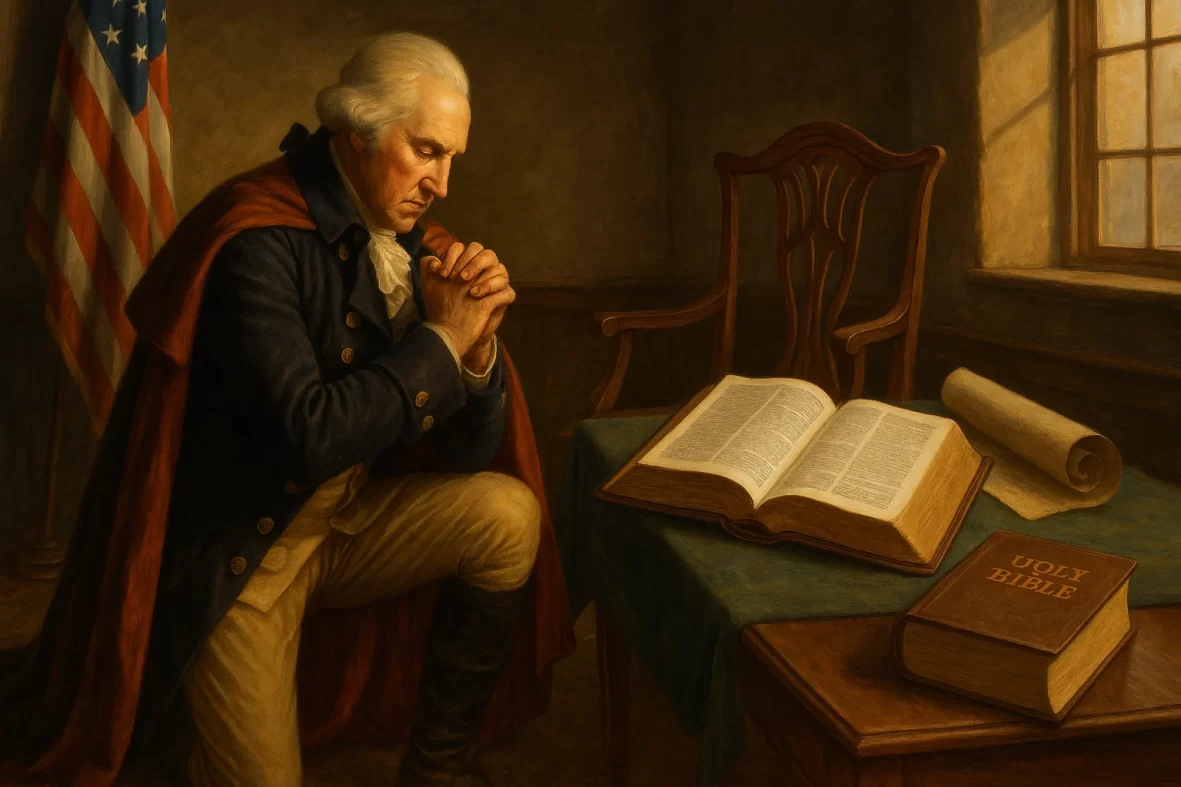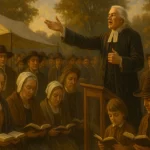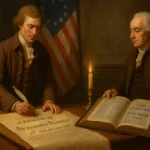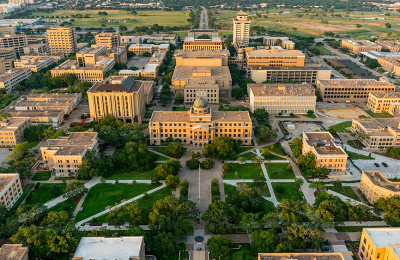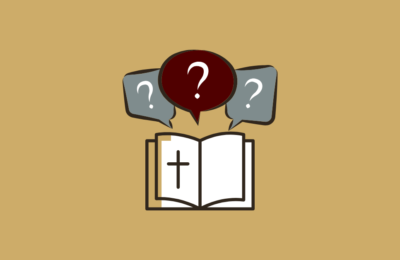Part 4 of Civic Theology: How the Bible Shaped America’s Founding and Freedom
When Americans look back on 1776 and the new nation that emerged, we often cast the Founding Fathers in heroic terms – courageous visionaries guided by divine Providence. Yet these great men were neither angels nor demons but a mixed lot of saints and sinners, of devout believers and skeptics, wrestling with God’s Word even as they tore down an empire. Many claimed public loyalty to “the Almighty” and prayed for God’s blessing on the Republic. As historian David Holmes observes, on the surface most of the Framers “appear to have been orthodox… Christians” – baptized church members who invoked Providence in speeches (Holmes, 2006). But a powerful Enlightenment current of Deism also swirled around them, stressing human reason over biblical revelation. How, then, did these men reconcile faith and freedom? How did Scripture – from Rom. 13:1 on authority to Gal. 3:28 on equality – inform the founders’ vision of liberty, law, and government? And what legacy did their “civic theology” leave for our nation’s covenant with God?
Orthodoxy, Deism, and the Civic Religion of 1776
The colonies in 1776 were overwhelmingly Protestant – Anglicans like George Washington, Presbyterians like Richard Stockton, Congregationalists like John Adams (Holmes, 2006). But the private faith of each Founder varied widely. Orthodox Christians in that era meant belief in the Trinity, the atoning blood of Christ, and the authority of the Bible. Figures like John Witherspoon and Benjamin Rush fit that mold: educated in Calvinist traditions, they walked in the older path of Reformation piety. By contrast, Enlightenment Deists – influenced by Rousseau, Locke, and Newton – revered a Creator but rejected miracles, the Resurrection, and specific Christian doctrines. Thomas Jefferson and Benjamin Franklin are the poster-children of this strain. Jefferson would write privately, “I am a Materialist; he [Jesus] takes the side of Spiritualism…”, signaling he admired Jesus as a moral teacher but denied His divinity (Dulles, as quoted in Holmes, 2006). Publicly he cut the miracles out of the Gospels and famously proclaimed a “wall of separation between Church and State” (Jefferson, 1802), insisting religion should be a matter of individual conscience. Franklin likewise avoided dogma, praising the “wisdom” of religion while serving with a witty skepticism.
Finally, there was a third category often called “civic religion.” This wasn’t a formal sect but a public idiom. It meant using God-talk – Providence, nature’s God, a Creator – to bind citizens together without affirming any creed. The Declaration of Independence’s reference to the “Laws of Nature and of Nature’s God” and the motto “Novus Ordo Seclorum” (a new secular age under divine favor) reflect this civil faith. Even skeptics in the Convention agreed to open sessions with prayer. In this way, the Revolutioners draped Christian-sounding language around republican principles. It was understood that, as Washington warned in his Farewell Address, “religion and morality are indispensable supports”for political prosperity – but what “religion” meant was often left flexible, a kind of nonsectarian deism-cum-piety (Washington, 1796).
All told, the Founders ranged from devout to deist. Holmes (2006) notes that most were at least “culturally Christian”: they attended services, cited the Bible, and believed in divine Providence. But among the educated elite, deistic ideas – “Nature’s God,” impersonal moral order – were popular. Even Thomas Paine, Benjamin Franklin’s protege, derided Christianity as a fable (Holmes, 2006). Yet the overall civic discourse assumed a Creator’s hand in history. The real question was how far Revelation should shape government. Did the Constitution guarantee only formal liberty, or did it rest on a God-ordained moral order? The men of 1776 debated this fiercely. Our Constitution’s unspoken premise, said Adams, was that “our Constitution was made only for a moral and religious people… wholly inadequate to the government of any other” (Adams, 1798). By contrast Jefferson warned against any established Church. Distinguishing these strands – orthodox faith, Enlightenment reason, and civil piety – is crucial to understand “the Founders’ faith.”
Scripture, Natural Law, and Public Discourse
Scripture itself frequently entered the public arena. Revolutionary Americans assumed the Bible carried weight, not just as personal devotion but as the source of moral and legal principles. The idea of natural law – a universal justice written on human hearts – drew on biblical roots (think Proverbs, Romans 2:15). It meant that kings and governments were subject to a higher law. The Declaration of Independence famously enshrines this: “Laws of Nature and of Nature’s God,” rights endowed by a Creator, self-evident truths. In effect, the Founders declared a covenant with the Almighty: God had given men unalienable rights, and government’s legitimacy came from securing those rights. This blends Romans 13 (God ordains authority) with a republican twist: if a ruler violates the Creator’s rights, people have a duty to change that rule.
Scripture verses were explicitly echoed in speeches and laws. For example, the Northwest Ordinance of 1787 – Congress’s plan for new territories – declared: “Religion, morality, and knowledge being necessary to good government and the happiness of mankind, schools and the means of education shall forever be encouraged.” Such language mirrors Galatians 3:28’s theme of shared moral status and the idea that wisdom is nation-building. Romans 13:1–7 was often cited to remind Americans that government itself was God-ordained; rebellion against tyranny could be justified only when rulers broke moral law. In debates over slavery and equality, Galatians 3:28 (“there is neither Jew nor Greek… male nor female, for you are all one in Christ Jesus”) undergirded the principle that all citizens had equal rights under the law. Even Acts 17:26, which says God “has determined the times set for them and the exact places where they should live,” suggested a providential ordering of nations. For many founders, America’s existence was no accident but part of a divine timetable.
Stories from the era show how scripture wove into political life. When John Adams defended the Revolution, he appealed to biblical justice and the Israelites’ fight against Pharaoh. General Washington, on the brink of battle, wrote of depending on Heaven’s mercy. In Congress, Benjamin Rush addressed his fellow physicians by pointing out that civil well-being began with virtue, and virtue “is the great essential principle of all morality” – a conviction he traced back to God’s unchanging laws . Few letters of the time lack some reference to a Creator or Providence. The founders knew Romans 13 and Psalm 72, Genesis and Deuteronomy, better than many modern politicians. They borrowed phrases from Isaiah when talking of liberty, or the prophets when speaking of justice. In short, Scripture provided a shared vocabulary. It was as if every law they wrote came with a scriptural footnote: God’s righteous standards.
Profiles in Faith:
The Founders
Each leader left a distinct spiritual imprint on the nation’s birth. Their stories blend biography with biblical undertones.
George Washington (1732–1799): The solemn Virginian grew up an Anglican but was never an outspoken preacher. He set the tone by example: prayer in camp, bill for a national day of fasting, constant appeals to Providence. After years of war, Washington told Congress that only “religion and morality” could support the republic (Washington, 1796). He rarely quoted scripture verbatim, but his famous remark – “Of all dispositions… which lead to political prosperity, religion and morality are indispensable supports” – echoes Proverbs and Paul . When chronicler Benjamin Rush observed how magisterial Washington appeared among 10,000 soldiers, he also noted Washington’s trusting in “Almighty” guidance . Washington personally attended services at Christ Church in Alexandria and Christ Church in Philadelphia whenever he could. He gave money to build churches and never excused clergy from military service. In sum, Washington exemplified the quiet faith of duty: a de facto believer who saw America’s fortunes as linked to obedience to God’s law.
John Adams (1735–1826): A fiery Boston lawyer and Congregationalist in background, Adams’s faith was complex. He preached family Bible readings, admired Puritan virtues, and late in life called Presbyterian catechisms. But he also was learned in Enlightenment thought. To him, religion was the bulwark of liberty. He famously warned that, without it, men “will choose immorality and irresponsibility” . In 1798 he wrote, “Our Constitution was made only for a moral and religious people. It is wholly inadequate to the government of any other.” This line, now etched into history, reflects his conviction that only the gospel’s ethics could keep democratic freedom from devolving into chaos. Adams even quipped that if he were an atheist, he would still marvel at how God could have used the Jewish people to preserve belief in a “supreme intelligent… Almighty sovereign” – which he deemed “the great essential principle of all morality” . In practice, Adams’s view made the new nation a quasi-covenantal community. He saw America’s mission (see Acts 17:26) as ordained: if there were no Creator, he asked, on what basis could we claim men are created equal ?
Thomas Jefferson (1743–1826): The eloquent Virginian was the synthesis of Enlightenment and religious radicalism. Raised Anglican but later dubiously Christian, Jefferson declared himself a “Christian in the highest sense” only because he valued Jesus’ moral teaching. He edited the Gospels into his “Life of Jesus”, removing miracles and supernatural elements altogether. He denied the Trinity and punished clergy in Virginia (to ensure religious liberty) – yet in 1776 he invoked a Creator on behalf of the Declaration’s rights. Jefferson insisted on a “wall of separation between Church and State” (Jefferson, 1802), believing true faith could not be compelled by government. Still, he often spoke of Providence – calling it “Almighty God” – and once mused privately that Jesus’ ethics would be good even “without being the Christ”. His deism was tolerant: he wanted religion to flourish freely but not to dictate public policy. Interestingly, in his later years he arranged a Bible lesson for neighbors, praising scripture as useful teaching (though his famous Bible had no miracles or resurrection). Jefferson’s faith, then, was one of reasoned devotion to natural religion: he viewed Scripture more as moral philosophy than as divine law.
James Madison (1751–1836): The scholarly Virginian was ambivalent. Raised Anglican like Jefferson, he later became a champion of religious freedom. Madison did not publicly debate Jesus’s nature, but he wrote confidentially that he was not a Calvinist and had a “cold” regard for revelations he could not verify. In fact, he opposed forcing religion on anyone – a principle he helped win into the First Amendment. Madison argued (1785) that religion was above civil coercion: faith must be voluntary and sincere. Yet he also understood that a republic needed virtue. Influenced by his mentor Witherspoon, Madison believed that public morality depended on some form of religion (if only to deter vice). In practice, he held that church and state must be separate, but he also opposed total atheism. He struck a balance: honoring religious convictions while erecting constitutional safeguards. Madison’s view anticipated the great American paradox: we depend on moral citizens, who in turn depend on faith, yet government may trust but must not establish faith.
Benjamin Franklin (1706–1790): The famous Philadelphian epitomized pragmatic Deism. He rarely attended formal services, though his wife was Episcopalian. Franklin believed in “the God of Nature” – a benevolent Creator who rewards virtue – but he found doctrines like the Trinity nonsensical. He once quipped that Christianity was the easiest, most reasonable of all religions for a philosopher. Franklin admired Jesus as a good moral philosopher, but he never claimed a personal relationship with Christ. At Constitution time, the 81-year-old Franklin told delegates that prayers to the Great Governor of the Universe were necessary, suggesting he trusted Providence to guide their deliberations. In his last letter, he advised a niece to join a church for its moral benefits, not for fear of hell (reflecting his belief that religion was useful even if supernatural claims were suspect). If anyone on Independence Hall hinted at Acts 17:26 – that God determines nations – it was Franklin, who liked to think the Revolution was part of God’s plan, though he expressed it in neutral terms.
Benjamin Rush (1746–1813): Philadelphia’s “beloved physician” was as fervent a Christian as any preacher. A Presbyterian convert influenced by Samuel Hopkins, Rush believed America’s liberty was God’s gift. In 1798 he declared that the new United States was “as much the work of a Divine Providence” as any Old Testament miracle . He argued bluntly that “the only foundation for a useful education in a republic is to be laid in Religion” – “without [religion]… there can be no virtue, and without virtue there can be no liberty” . In his mind, Romans 13 and Galatians 3:28 converged: all citizens (slave or free, man or woman) stood equal under God, which meant they should stand equal under law. Rush even helped found a Sunday School and supplied free Bibles to schools. He fused evangelical zeal with nationalism: America, he said, had a providential mission to spread liberty and justice. Today we might see in his words a direct echo of the biblical covenant idea – a new Israel founded on God’s law, entrusted with freedom.
John Witherspoon (1723–1794): The Scottish minister who headed Princeton College brought stern Presbyterian faith into the political mix. He’s often called the intellectual “godfather” of the Constitution, because he taught Scots common-sense realism to a generation of leaders (including a young James Madison). Witherspoon believed science and Scripture are companions: “If the Scripture is true… the discoveries of reason cannot be contrary to it,” he told students . He insisted that “public religion was a vital necessity in maintaining the public morals” . In other words, a republic couldn’t survive on secular virtue alone. Unlike Jefferson or Franklin, Witherspoon did not demand a strict separation; he expected a religious citizenry even if not an established church. He helped write the New Jersey constitution and reformed Princeton to combine piety with Enlightenment ideas. At the Continental Congress he remained the only active clergyman. We see his influence when Madison notes that human nature is flawed (like Adam’s sin), a gospel-born realism with a check on utopianism. Witherspoon’s legacy is best summed by historian Mark Noll: he gave the American Enlightenment “an evangelical baptism.” He took Galatians 3:28 seriously – arguing that all people have a conscience – but he also firmly preached the need for Christian redemption to truly bind society together.
Charles Thomson (1729–1824): Though never an elected delegate, the Philadelphia-born son of Irish immigrants sat for 15 years as secretary of Congress. Thomson was no politician but a devout Bible student. He co-created the Great Seal motto “Annuit Cœptis” (“He favors our undertakings”) and “Novus Ordo Seclorum” (“A new order of the ages”), invoking God’s providence in America’s birth. In retirement he translated the entire Septuagint (Greek Old Testament) into English – the first of its kind – and compiled Gospel synopses. His contribution was that he carried Scripture into the archives and insignia of the nation, reminding all that Providence watched over the Republic. Thomson exemplified a scholar’s faith: his life reminds us that even the unsung heroes of 1776 were shaped by the Bible.
Legacy: Covenant Nationhood and Divine Purpose
What did all this mean for America’s future? The Founders’ faith produced a kind of covenantal national consciousness. They spoke of forming “a more perfect union” under Almighty God, echoing Biblical covenants in which a people bind themselves to divine law. In practice, America was never a theocracy – Jefferson and Madison succeeded in keeping any national church off the books – but early Americans did see their liberty as rooted in higher law. The Pledge of Allegiance’s “one nation under God” (added much later) captures the idea that country and creed belong in the same breath. From Rom. 13:1 they inferred that government has God’s sanction – so long as it honors natural rights – but from Acts 17:26 they learned that God alone draws national boundaries. And from Gal. 3:28 they grasped an inspiring ideal: a democracy in which all citizens are equal before the law and before God.
In the 19th century this scripture-laden legacy shaped movements for reform. Abolitionists cited Genesis and Corinthians in denouncing slavery; suffragists appealed to Galatians to argue for women’s rights. Even if the Founders fell short on these issues, their language planted seeds for future change by teaching that liberty under law implies a moral duty to justice. Modern America still feels this covenant impulse whenever we invoke God in public vows or when leaders pray for the nation. We see it whenever Americans believe there is a divine purpose to history – an idea inheriting directly from the founders who, against all odds, believed they were stewarding liberty under God’s watch.
Today’s debates about faith and politics can learn from the founders’ balance. John Adams warned that without virtue and religion, democracy would collapse (Adams, 1798). Yet he and others also insisted that faith be a willing choice, not an imposed creed (Jefferson, 1802; Madison). The healthy tension they maintained – between Romans 13’s respect for authority and Acts 17’s higher sovereignty – points us toward an enduring civic theology. We are to be Romans 13citizens and Acts 5 witnesses simultaneously: obey laws and fear God above all. As Galatians 3:28 teaches, the idealAmerican community is one where no one is ranked above another in dignity because we all belong equally to Christ. Whether the founders themselves fully lived out that promise can be debated; what’s undeniable is that they were steeped in scripture, whether as saints or skeptics. In learning from them, we remember that the strength of our republic depends not on secular ideology alone, but on God’s truth anchoring our law and liberty.
The story of 1776 is not finished. It continues every time citizens affirm that “we all must yield our obedience to the laws of the land and the laws of God.” By covenant we chose freedom, and by covenant we remain a nation under God. May we, like the founders, act on the conviction of Romans 13, obeying legitimate authority, yet honor the higher justice of Acts 17:26 and the equality of Galatians 3:28. In this way the legacy of the founders’ faith still lives on in America’s covenantal understanding of liberty, law, and purpose.
References
Adams, J. (1798, November 28). Letter to the Officers of the First Brigade of the Third Division of the Massachusetts Militia. John Adams Papers. (Reprinted in John Adams Center, Why John Adams).
Dulles, A. (1985). Models of revelation: Transcendence, paradigms, and politics. Crossroad.
Holmes, D. L. (2006). The faiths of the founding fathers. Oxford University Press.
Jefferson, T. (1802, January 1). Letter to the Danbury Baptist Association. National Archives and Records Administration.
Noll, M. A. (2003). The new birth of freedom: John Witherspoon and the founding of the American Republic. Oxford University Press.
Richard, C. J. (2017). The founders and the Bible: America’s heritage from the colonial era to the present. Rowman & Littlefield.
Rush, B. (1798). Address to the People of the United States. (Published in The American Museum, December 1798).
Washington, G. (1796, September 17). Farewell Address. National Archives and Records Administration.
Rom. 13:1–7, Gal. 3:28, Acts 17:26 (New International Version Bible).
Want to explore further?
Dig Deeper into Civic Theology



